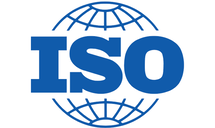The future of global monetary policy, Crypto and how the LEI system can play a major roleThe way we conduct business on a global scale is becoming ever more digitised. This intensifies the need for more robust and standardised security around digital identity and transparency when it comes to financial transactions and sending money abroad. This includes the need for regulators to custody their respective markets and ensure fairplay, and also provide the participants in each market to have sufficient, reliable and standardised data on who they are doing business with. With the ongoing complications brought on by the COVID-19 pandemic, we have seen how the current global financial system has room for improvement, and how the Legal Entity Identifier can help fill these gaps.
These delays can all be streamlined by access to reliable data such as the Legal Entity Identifier database. The LEI helps identify debtors and creditors in transactions quickly, easily and reliably.
In the physical world we would never consider a SWIFT transaction to an unverified entity. We would have regulatory compliance, KYC protocols, verification processes and credential validation. Perhaps even a custody and clearing service! Yet Cryptocurrency, with its anonymity focus is now a MAJOR focus of Institutional investors and in order for it to be accepted more broadly as a utility, it needs regulatory clarity, and efficient KYC processes. Cryptocurrency ‘institutional investor interest is growing at pace.’ WHY? Cryptocurrency has the inbuilt advantages of:
Cryptocurrency is a global digital currency that is secured by cryptography. It is also usually not tied to any Government or central authority meaning it has a decentralised control system. This is normally a distributed ledger technology, called a Blockchain.” Blockchain and the LEI
While the transaction records of cryptocurrencies like Bitcoin can be viewed by anyone with the address details, they do not require a real world identity to be provided. This means that the transactions can be anonymous and untraceable to the participants in the transaction.
Neutral bridge assets such as a blockchain based currency would enable seamless currency movement between various Central Banks without requiring each one to load pre-funded accounts often required in cross-border transactions. An on-Demand Liquidity service would allow financial institutions to transact in instantly on a global scale, using a digital asset as a bridge currency. A will create faster, cheaper, and more efficient payment infrastructures with lower failure rates; greater competition and access to global markets; increased access to financial services for unbanked populations; and government sovereignty over monetary policy. The LEI solution was created after the financial crisis in 2008 when firms and regulators had difficulty tracing and establishing participants in financial transactions in organisations such as AIG and Bear Stearns. A 20-digit, alpha-numeric code based on the ISO 17442 standard. The LEI is a unique legal entity reference number enabling identification of legal entities participating in financial transactions GLOBALLY. Providing a standardized framework that enables accuracy and reliability in a global financial system for all the market participants. The use of the LEI for fully distributed verifiable credentials provides a missing capability in distributed identity. The value extends far beyond financial services to e-commerce, trade services, and governmental reporting. The LEI in this way reinforces the value the ISO 17442 standard as the world of organizational identity in the digital world evolves.” LEI usage is already providing firms with the ability to improve transparency, risk management and regulatory compliance. According to a report by McKinsey, the wider use of Legal Entity Identifiers (LEIs) across the global banking sector could save the industry $2-4 billion USD annually. In April 2019, the Global Legal Entity Identifier Foundation (GLEIF) and the Association of National Numbering Agencies (ANNA) piloted the first daily open-source relationship files that link newly issued International Securities Identification Numbers (ISINs) and Legal Entity Identifiers (LEIs). With a universally recognized digital identifier, this would further help cater to the demands of exchanges, regulators, service providers, and custodians. The ISIN to LEI would facilitate clearing and settlement of securities and payment processing during the issue of a specific security. The linking of ISINs and LEIs was endorsed by regulators, including the Financial Stability Board (FSB) and the European Securities and Markets Authority (ESMA). NNA's such as Tokyo Stock Exchange ,London Stock Exchange, CUSIP Global Services continue to join the ISIN to LEI Mapping Initiative. The daily ISIN-to-LEI relationship files, are publicly available on the GLEIF website, and include new ISINs issued by national numbering agencies (NNAs). Volumes of ISIN-to-LEI coverage have grown to over 5.2m active ISINs linked to almost 72,000 unique LEIs. Could all this mean that a cryptocurrency based financial system becomes the de facto money transfer system replacing SWIFT? It certainly is a conversation being had within the major financial authorities around the world at the moment. A digital LEI system would provide the following benefits to such a system:
LEI Worldwide could play a major role in this transition by providing and managing Legal Entity Identifiers to the market participants engaging in these transactions.
LEI Worldwide is seeking partnerships with Globally Important Financial Institutions such as banks to help them become Validation Agents as a part of GLEIFs new VA programme, offering management to their LEI portfolios and ensuring timely renewals, a streamlined registration process through the use of APIs and access to a fit for purpose LEI management system.
17 Comments
|
LEI WorldwideThe views expressed in this blog belong to LEI Worldwide. Archives
April 2022
Categories |
Facilitating the global allocation of LEI numbers.
LEI Worldwide facilitate entity identification in the global financial system, capital markets and private sector. We make the process accessible and simple for Legal Entities to obtain Legal Entity Identifier numbers. By doing this we help facilitate the global allocation of LEI numbers. It is our mission to be the one point of contact globally between Legal Entities & LOU’s and ensuring the LEI becomes the Worlds most important identifier.
Services |
Company |
|
UNITED STATES | DUBAI | GERMANY | NETHERLANDS | UNITED KINGDOM | AUSTRALIA | BRAZIL | CANADA | FRANCE | SPAIN | HONG KONG | CHINA | INDIA | ITALY | SWEDEN | BVI | MALTA | UNITED ARAB EMIRATES | MEXICO LUXEMBOURG | SOUTH AFRICA | BELGIUM | SINGAPORE | JAPAN | MAURITIUS | CAYMAN ISLANDS | TURKEY | PORTUGAL | PANAMA | DENMARK | CYPRUS | KENYA | IRELAND | NEW ZEALAND | GREECE | SEYCHELLES








 RSS Feed
RSS Feed









